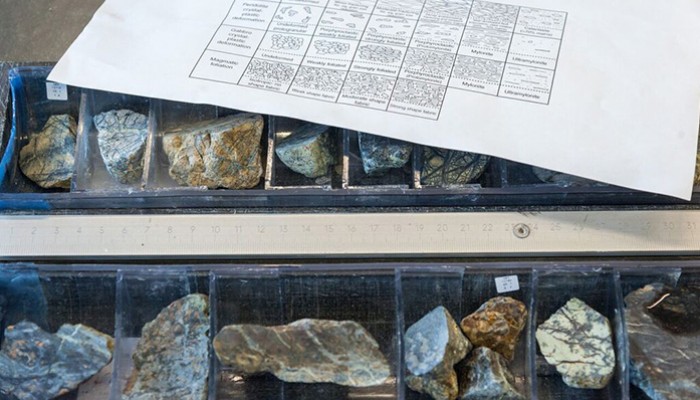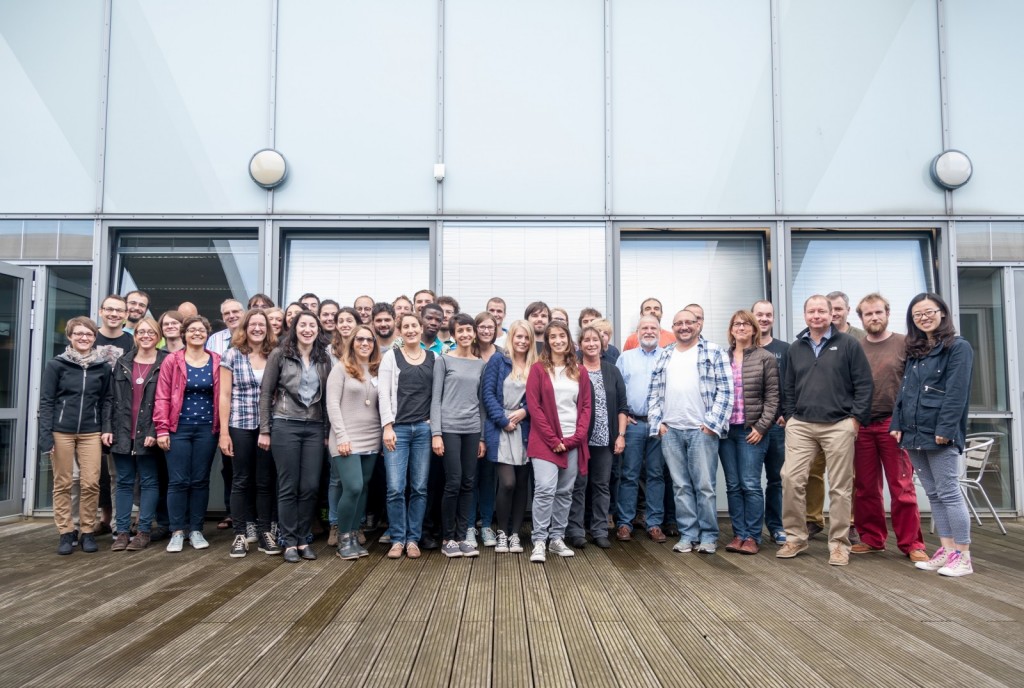
Summer time as an early career geochemist can mean many things, to some it is vacation time, to others it is field season, and yet for others it is time to enroll in a summer school. ECORD, the European Consortium for Ocean Drilling, offers at least one summer school a year. If you work with foraminifera you may be familiar with the Urbino Summer School in Paleoclimatology, sorry to disappoint, but this post is on another summer school that ECORD offered this year.
The ECORD Summer School on Ocean crust processes: magma, faults, fluxes, and life in Bremen, Germany took place from August 31-September 11. It was the second time this course was offered, and the first was in 2009. The MARUM houses the Bremen Core Repository. This repository is for cores drilled by the Deep Sea Drilling Project (DSDP), Ocean Drilling Program (ODP), the Integrated Ocean Drilling Program (IODP) and International Ocean Discovery Program (IODP) in the Atlantic Ocean, the Mediterranean and Black Seas and the Arctic Ocean. Being located in the MARUM offered the unique opportunity to not only hear lectures about specific expeditions and cores, but view the cores themselves. We also got to see some of the German remotely operated (ROVs) and autonomous underwater vehicle (AUVs) along with the MeBo and MeBo 200, two seafloor rock drills, which were developed by the MARUM.
The “and life” portion of the ECORD course was naturally on the deep biosphere as it applies to ocean ridges and spreading zones. While life may have appeared almost as an afterthought in the course title it was given an entire day onto itself in the 10 day program. Further, it was a frequently mentioned topic throughout. As you may know the deep biosphere is a relatively poorly understood and poorly studied area of the global biosphere. When talking about the ocean crust and life it is always easy to just focus on well known hydrothermal vent fields such as TAG, and ignore any life that may exist outside of a vent environment. This course did neither. One of the highlights from a biogeosciences perspective was the presentation of Prof. Dr. Gretchen Fuhr-Green on the ECORD Mission Specific Platform expedition 357 to Atlantis Massif which is in process now. Expedition 357 looks at serpentinization and life using two seafloor rock drills, the MARUM’s MeBo, and the British Geological Survey’s Rock Drill. It focuses on the microbial communities found in serpentinized rocks, and how they might impact or influence the process of serpentinization. Her presentation featured quite a lot of information about the planning of expedition, along with a detailed explanation of how mission specific platforms work. Both of which are important knowledge to any ESCs who may consider proposing an IODP expedition in the future.
Another highlight was the final full day of the summer school. This was the “biology” day. Speakers Dr. Magnus Ivarsson and Dr. Benedicte Menez told us all about how microimaging techniques can be used to image and study the deep biosphere. Additionally Dr. Menez presented how microbiological techniques can be used to examine and identify the microbial communities found in hard rock. After, Prof. Wolfgang Bach taught a practical on modeling hydrothermal reactions and bioenergetics. All of these are very useful for someone who studies deep life and/or rocks that deep life may act on.
I study geomicrobiology and the deep biosphere as it pertains to ocean basalts which is why such a course would have been relevant for me even if “life” wasn’t tacked onto the end of the title. However, the biogeosciences are very diverse field of Earth Sciences, which can span from biology in soils, to trees, to palaeoclimate, to life on Mars, and etc. So a course like this may not be relevant for everyone. All in all though the ECORD 2015 Bremen Summer School was a fantastic course if you have an interest in either microbial life in hard rocks, or in ocean crustal processes.


Pingback: Life as a (semi-) nomadic early career scientist | SeaRocks Blog